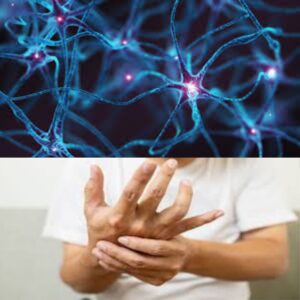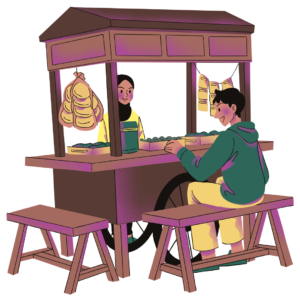Maharashtra has reported its first fatality due to Guillain-Barré Syndrome (GBS), a rare autoimmune neurological condition. The deceased, a 41-year-old resident of Solapur, succumbed to complications linked to the disorder, marking a significant escalation in the recent GBS outbreak. Health authorities have confirmed that more than a dozen patients are currently on ventilator support in Pune and nearby regions, highlighting how serious the situation is

Let’s know what Guillain-Barré syndrome (GBS) is, its cause, symptoms, and what food to avoid in this syndrome.
Guillain-Barré syndrome (GBS) is a rare neurological condition where the immune system turns against the body’s peripheral nerves. This condition often results in muscle weakness and, in extreme situations, paralysis. In recent times, Pune has reported a notable increase in cases of GBS, which has led to health officials taking immediate steps to address the situation.
Guillain-Barré syndrome (GBS) is an autoimmune disorder that targets the peripheral nervous system, which comprises the nerves outside the brain and spinal cord. While the exact cause of this condition remains uncertain, it is frequently triggered by an infection. Many individuals who develop GBS report experiencing a respiratory or digestive tract infection in the weeks prior to the onset of symptoms.
How GBS (Guillain-Barré syndrome) Develops
GBS is not a contagious condition and cannot be transmitted from one person to another. However, it often follows specific infections, including:
- Campylobacter jejuni: A bacterium that is a common cause of foodborne illness.
- Influenza: The virus responsible for seasonal flu.
- Cytomegalovirus and Epstein-Barr virus: viruses that can lead to conditions such as mononucleosis (also known as mono, which is a contagious viral infection that causes fever, sore throat, and fatigue).
- Zika virus: A virus primarily spread through mosquito bites.
Symptoms of GBS
The initial signs of GBS typically include:
Tingling or prickling sensations in the fingers and toes.
Muscle weakness starts in the legs and potentially spreads to the upper body.
As the condition progresses, individuals may experience:
- Difficulty with eye muscles and vision.
- Challenges in swallowing, speaking, or chewing.
- Severe pain, especially at night.
- Coordination problems and unsteadiness.
- Abnormal heart rate or blood pressure.
- Problems with digestion and bladder control.
In severe cases, GBS can lead to paralysis, making it a medical emergency that requires immediate attention.
Source: Guillain-Barré Syndrome | National Institute of Neurological Disorders and Stroke
Preventive Measures and Precautions
Although preventing Guillain-Barré syndrome (GBS) is difficult due to its uncertain causes, there are steps you can take to reduce the risk of associated infections:
- Practice Good Hygiene: Washing your hands frequently with soap and water can help lower the chances of contracting infections that might lead to GBS.
- Proper food Hygiene: Properly cooking and storing food reduces the risk of foodborne illnesses, such as those caused by Campylobacter jejuni.

Avoid food from stalls and consuming stale food.
Wash your vegetables and fruits properly.
Ensure all foods are cooked properly, especially non-vegetarian food.
Avoid unpasteurized dairy like milk, paneer, and cheese, or if consuming
It should be cooked at 165°F, which is 74°C.
Drink only treated or boiled water.
- Stay Informed About Vaccinations: While a small link between certain vaccines and GBS has been reported, the overall risk is extremely low. If you’re concerned, talk to your doctor to make informed decisions.
- Pay attention to symptoms. If you notice persistent tingling sensations, muscle weakness, or difficulty breathing after an illness, seek medical advice without any delay. Early intervention can make a significant difference.
Current Situation in Pune
As of January 28, 2025, Pune has reported a significant increase in GBS cases, with numbers rising to over one hundred. Health authorities are investigating potential causes, including water contamination, and have collected water samples from affected areas. The state health department has also included GBS treatment under the Mahatma Phule Health Scheme, allowing patients to avail themselves of free treatment up to Rs 2 lakh.
Mortality Rate and Prognosis
While GBS can be life-threatening, especially if it affects respiratory muscles, most individuals recover with appropriate medical care. The mortality rate varies but is generally low, especially with prompt treatment. However, some patients may experience long-term complications or require extended rehabilitation.
Conclusion
Guillain-Barré Syndrome is a rare but serious condition that necessitates immediate medical attention upon the appearance of symptoms. The recent surge in cases in Pune underscores the importance of awareness and early detection. By staying informed and taking preventive measures, individuals can reduce their risk and ensure timely treatment if needed.









